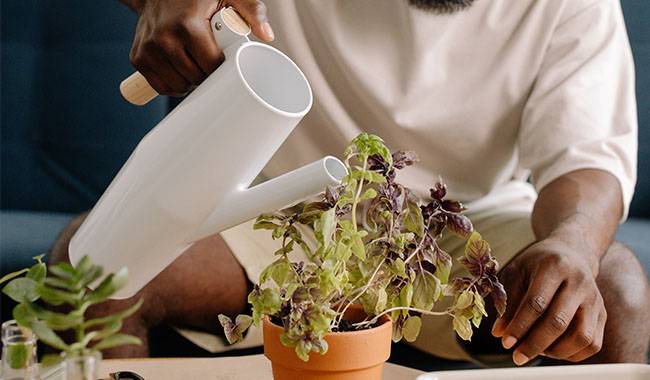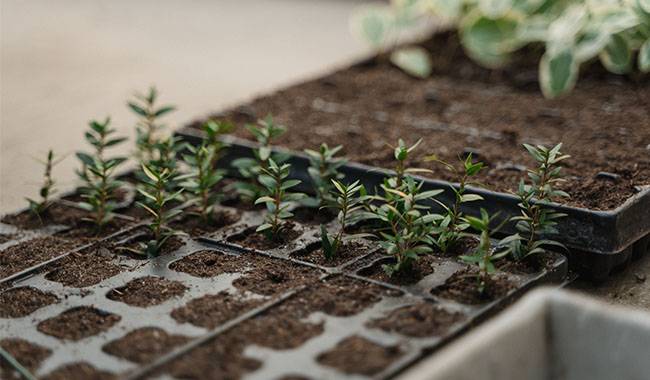
Many plants, including garden herbs, can be used as natural cleaners. Some can even disinfect surfaces to some degree and require an arsenal of weapons from an eager hostess. You will learn which 6 plants can help clean your home naturally in the thumbgarden.com article.
The magical properties of nature never cease to amaze us. Herbs have long been an integral part of our families, helping us to live healthy and happy lives. From cooking to cleaning, we find herbs useful in almost every area.
There are some benefits to using natural homemade disinfectants or cleaners over industrial disinfectants or cleaners (especially if your family has allergies or asthma), but keep in mind that plants do not kill most germs and viruses. In order to disinfect completely, you need something stronger.
Which 6 Plants Can Help Clean Your Home Naturally
If you read the ingredients in simple disinfectants and antibacterial cleaners, you’re sure to find some natural ingredients in them. For general cleaning, try these natural disinfectants.
1. Lavender

Originally from the Mediterranean region (e.g. Spain, Portugal), south to tropical Africa, and east to India, including the Canary Islands, northern and eastern Africa, southern Europe, the Mediterranean region, the Arabian Peninsula, and India.
Because cultivable varieties are widely cultivated in cultivated gardens around the world, one can occasionally find lavender populations in the wild formed from seeds floating out of gardens in many non-original regions.
Lavender oil mixed with baking soda is considered to be an excellent deodorizer for carpets. Spread this mixture on a pile of paper, let it soak for a while, and then vacuum it. A few drops of lavender oil can be placed on the dust bag of the vacuum cleaner in order to leave a pleasant scent after cleaning.
Lavender can also reduce stress and depression and benefit the skin. It is helpful for burns, headaches, psoriasis, and other skin conditions. Calming, pain-relieving, and relaxing effects
More Related Information About Lavender
2. Mint
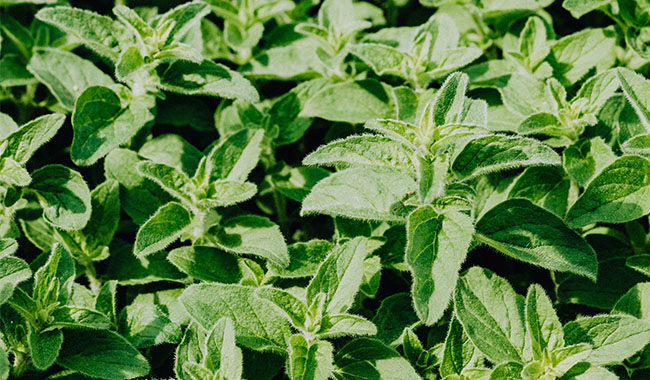
Mentha (scientific name: Mentha Canadensis) is a species of the genus Mentha in the family Lamiaceae, widespread in East Asia, the central and southern peninsula, Malaysia, east-central Siberia, and North America. Mentha Canadensis is most likely a natural hybrid of wild mint and European mint. The species is known by the addition of the word “Canadensis” meaning “of Canada”.
Mint leaves contain aromatic oils and have a scent similar to that of Mint. The leaves can be harvested and dried during the growing season and preserved, for example, to make mint jelly, mint tea, and pastries. Native Canadians use Mint tea to relieve bad breath, toothaches, or hiccups. It is also used as a trapping tool for foxes and lynx.
Mint is loved by many for its clean and refreshing scent, which is why it is on this list. Mint can be used in various forms as a disinfectant.
For example, you can add a few drops of Mint oil to water with a little lemon juice and use this liquid to clean doors and windows. This product will extinguish pests and help keep insects away from your windows and doors.
More Related Information About Growing Mint
3. Eucalyptus
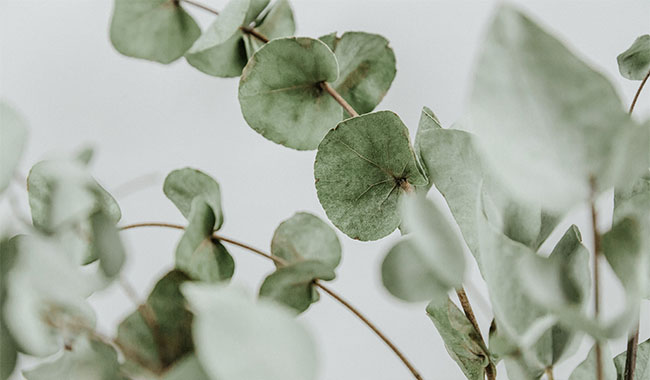
Eucalyptus (scientific name: Eucalyptus), commonly known as eucalyptus and eucalyptus, is a genus in the myrtle family of the order Myrtaceae. It is generally an evergreen tree; branches and leaves have fragrant flowers; leaves are usually alternate, stalked, pinnately veined throughout, mostly falcate; white, red, or yellow flowers in early spring, mostly in umbels or heads, with sepals and petals conjoined into caps (lids) that fall off at flowering; capsules are apically 3-5-lobed at maturity; most seeds have angular ribs.
Eucalyptus oil is an antiseptic, antiseptic, antiviral agent, that relieves chest pain, expectorant, and cough suppressant. It can be used as an ointment for muscle aches and pains. It has insecticidal properties and also relieves pain from insect bites.
Acts as a decongestant and mild antiseptic to reduce swelling caused by increased blood flow and relaxes tired and painful muscles. Effective in treating colds, coughs, and other respiratory ailments. The vapors produced by inhaling a few drops of the oil help to repair the mucous membranes.
A tall tree has beautiful long leaves that look attractive and the leaves have antibacterial properties. Adding eucalyptus oil and a small amount of tea tree oil will work like a magic elixir, especially for your bathroom. It not only disinfects the room but also leaves a refreshing and pleasant smell. Add eucalyptus oil and tea tree oil to water to make a disinfecting bath spray.
More Related: How to Grow and Care Eucalyptus Plant at Home
4. Carnation
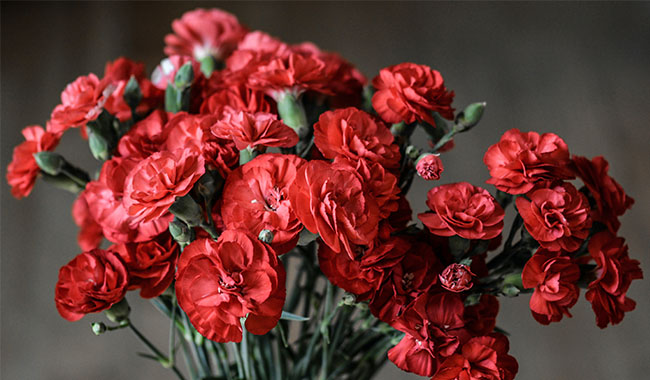
Dianthus caryophyllus (scientific name: Dianthus caryophyllus), also known as Dianthus caryophyllus, Loropetalum, carnation, also known as lion’s head carnation, musk carnation, dahlia carnation, Dutch carnation, is a plant of the genus Dianthus in the family Dianaceae.
Carnation is the main export species in Kenya and the largest flower species exported from Colombia in America, and it is cultivated in large quantities in Japan, Korea, and Malaysia in Asia. In Europe, it is also cultivated on a large scale in Germany, Hungary, Italy, Poland, Spain, Turkey, England, and the Netherlands.
To combat mold and mildew in your home, you can make a spray with clove oil and water. Besides being a favorite spice, cloves also have antibacterial and antifungal properties. Pour half a teaspoon of clove oil into a sprayer and place the solution on the stovetop for a while. Afterward, wipe with a microfiber cloth and do not rinse the surface with water – the dry solution will prevent mold from growing again. An orange studded with cloves will help protect your cabinets from moths.
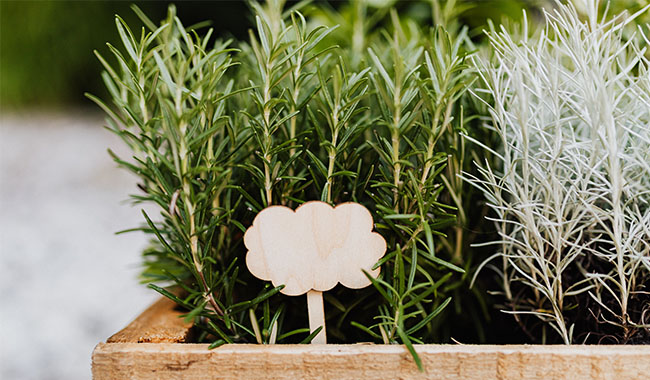
5. Rosemary
Rosemary (scientific name: Rosmarinus officinalis) is a native to the Mediterranean basin, a woody perennial spice plant that grows wild or in chalky soils. The stems, leaves, and flowers are used to extract aromatic oils.
Rosemary contains many phytochemical substances, including rosmarinic acid, camphor, caffeic acid, ursolic acid, bircholic acid, and the antioxidants syringic acid and syringol. In Indian traditional medicine, extracts from flowers and leaves and essential oils are used to treat a variety of conditions.
The scent of rosemary lifts the mood, fights depression, balances tightness, and opens the mind. It can be used as an anesthetic sedative, antiseptic, antispasmodic, or astringent, but also as an invigorating and blood circulation stimulant. Useful for cellulite, cellulite, dandruff, hair loss, memory problems, headaches, muscle pain, etc. Used in hair care products to help moisturize and add shine to hair.
Vinegar infused with rosemary is a great cleanser. Place a sprig of rosemary in white vinegar and lemon peel and let it steep for a few weeks before using. This product is safe to use and has no harmful fumes, such as bleach.
More Related Information About Growing Rosemary
6. Lemon
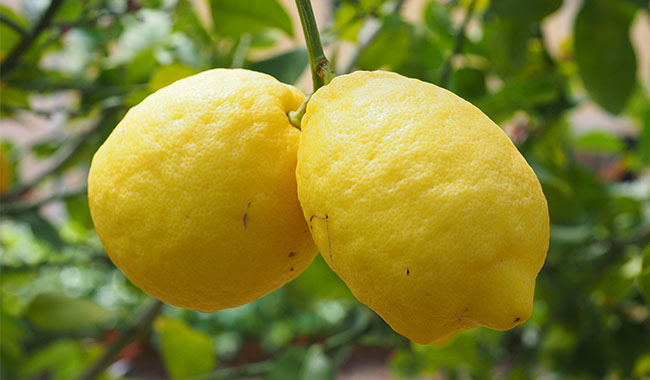
Lemon (scientific name: Citrus limon) is a species of citrus in the Rutaceae family, a small evergreen tree native to Asia with yellow oval-shaped fruits. The origin of the lemon is a mystery, as it is widely believed to have originated in northern Myanmar and China. A study on the genetic origin of lemons suggests that they originated from the hybrid germplasm of citron and bitter orange.
The fruit is mainly used for juicing and sometimes as a culinary seasoning but is largely not used as a fresh food because it is too acidic. The fruit contains 5% citric acid. Lemon juice contains 501.6 mg of vitamin C and 49.88 g of citric acid per liter.
The essential oil extracted from lemons acts as an antiseptic and astringent. It increases the body’s resistance to infection. Helps with varicose veins, stomach ulcers, anxiety, depression, and digestive problems. Helps emulsify and break down oils. Can be used to moisturize hair, clean wounds, and in some cleaning products.
Several studies have shown that citrus fruits also contain many other plant compounds with known antioxidant, anti-inflammatory and antibacterial properties. These compounds may play a role in the prevention of heart disease and certain types of cancer, including breast and colon cancer.
Like mint, lemon is present in almost all homemade disinfectants. It is known for its bleaching and cleansing properties. You can use lemon juice with baking soda or vinegar to make an effective cleaner. Half a lemon sprinkled with baking soda is a great surface cleaner. Try it on countertops and in the bathtub.
More Related Information About Growing Lemon





